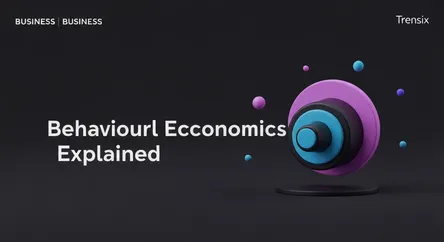Business
Behavioral Economics Explained

Discover how psychology influences financial decisions. Behavioral economics explains why people make seemingly irrational economic choices.
What is it?
Behavioral economics blends insights from psychology with economic theory to understand how people make financial decisions. It challenges the traditional view of humans as perfectly rational, showing that emotional, social, and cognitive factors lead to seemingly irrational choices. Key concepts include cognitive biases like loss aversion, where the pain of losing is felt more strongly than the pleasure of an equal gain, and mental shortcuts (heuristics) that people use to simplify complex decisions.
Why is it trending?
The field has gained popularity because its models better explain real-world events like stock market bubbles and personal debt. Its principles, particularly "nudge theory," are now widely applied by governments and businesses. Companies use its insights to design marketing campaigns that steer consumer choices, while policymakers use it to encourage behaviors like saving for retirement or making healthier lifestyle choices, often with remarkable success.
How does it affect people?
Behavioral economics impacts everyone's daily financial life. It explains why someone might stick with a default savings plan, overspend on a credit card, or sell stocks in a panic. By understanding these inherent biases, individuals can become more aware of their decision-making and develop strategies for better outcomes. It encourages a more critical look at marketing tactics and highlights the importance of a disciplined financial plan that isn't swayed by short-term emotional reactions.